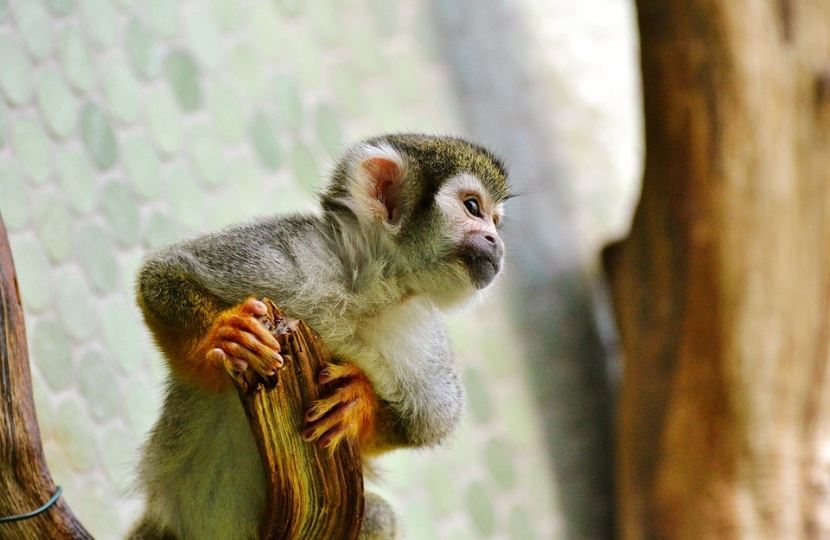
UPDATE - DECEMBER 2023:
Keeping primates as pets will be banned under new legislation, the Animal Welfare (Primate Licences) (England) Regulations 2023, which has now been introduced to Parliament by the Government, improving the welfare of thousands of animals.
The legislation brings in a licensing scheme setting strict rules to ensure that only private keepers who can provide the highest welfare standards will be able to keep primates. It is estimated that up to 5,000 primates are kept as pets in the UK. These wild animals have complex welfare and social needs and, according to most experts, cannot be properly cared for in a domestic setting.
Under the changes, introduced via secondary legislation under the Animal Welfare Act 2006, it will no longer be possible to keep primates in domestic settings as household pets in environments that fail to provide for their needs. Licensing is expected to come into force in 2026, subject to parliamentary processes, with existing keepers having two years from the regulations being approved to reach compliance with the licensing conditions.
The new laws deliver on a manifesto commitment and builds on the recent primate consultation. It is already an offence to keep a primate while not providing for their welfare needs, or to cause them unnecessary suffering. Today’s announcement tightens these rules further – and all private primate keepers will be required to hold a licence, issued by their local authority. Failure to comply with the law could result in an unlimited fine or removal of the primate.
Government Action in 2020:
The government launched proposals to ban keeping primates as pets in England in 2020. The public consultation on the government’s manifesto commitment to ban keeping primates such as capuchins, lemurs and squirrel monkeys forms part of a renewed push to cement the UK’s position as a world leader on animal welfare.
Primates are highly intelligent wild animals with complicated welfare needs. They require open spaces, varied diets, social contact and plenty of warmth and light. Findings from a recent call for evidence found that these complex needs cannot be met in a home environment. Under these new plans, it will be an offence to keep a primate as a pet in England. Only those keeping primates to zoo level standards will be permitted to keep primates.
The Government anticipates that up to 5,000 primates are currently kept outside of licensed zoos in the UK. Marmosets are by far the most commonly held primates in the UK, with capuchins, squirrel monkeys, lemurs and tamarins also among the most common species.
The new proposals mean that specialist primate keepers who do not hold a zoo licence will need to obtain a new specialist private primate keeper licence to ensure they are meeting the required high welfare standards. These plans will also place welfare restrictions on the breeding and transferring of primates.
Animal Welfare Minister Lord Goldsmith said:
"Primates are hugely intelligent and socially complex animals. When they are confined in tiny cages, often alone and with little stimulation, their lives are a misery.
It’s important that we take action to prevent the suffering caused to them when they are kept as pets, and so I am delighted that we are moving a big step closer towards banning the practice. These proposals will ensure that we have the strongest protections in place for our animals.
We have some of the highest animal welfare standards in the world, and these plans form part of a range of measures we are taking to raise the bar even further, such as ending live animal exports and cracking down on illegal puppy smuggling"
Currently, anyone wishing to keep a primate covered by The Dangerous Wild Animals Act 1976 must apply for a licence from their local authority. Some keepers of smaller primates do not need a license, but in all cases, the animal is protected by the Animal Welfare Act 2006. It is an offence not to provide for an animal’s welfare needs and anyone breaking this law can face an unlimited fine or a prison sentence, or both. The statutory Code of Practice for the Welfare of Privately Kept Non-human Primates also outlines how primates must: be provided with a suitable environment and diet; be able to exhibit normal behaviour; be housed with, or apart from, other animals; and be protected from pain, suffering, injury and disease.